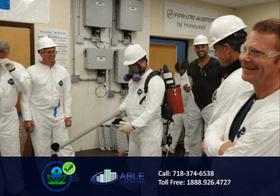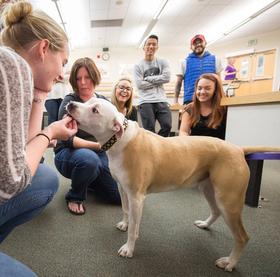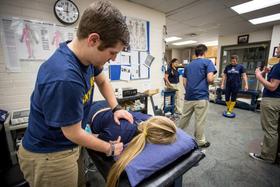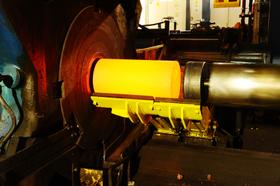Are you thinking about teaching? Want to find out more about the profession? Whether you have just graduated from high school or have been out in the workforce for decades, the teaching bug won't let go when the teaching bug bites. This is where your community college can be helpful. Why? Because its website allows you to do some virtual exploration. You will need to do your four-year, master's, or doctorate at a four-year institution. But, let's say you want to know more about what teaching involves. Perhaps you're curious about how your language skills might fit into teaching credentials. Maybe you already have a bachelor's degree in a specific subject area, such as mathematics or physics but have never taken any education courses. Your community college's website is excellent for looking for information and answers to your questions.
Explore the possibilities.
As I said before, your community college can be helpful. First, search its website using the search term "education ."You will get results similar to what I got below when I searched for "education" on the Prince Georges County Community College, Maryland website. Ignore Continuing Education and Driver Education and similar search results for the moment, and explore the Education Department link. Now you have several choices to explore. With any luck, you will find more information to help you decide whether teaching still appeals.
This video suggests 25 things you should know about becoming a teacher.
Need some credentials?
Your community college can help you earn the credentials you need to become a licensed teacher. On the college's website, search for "praxis," and you will find a course or courses that will prepare you for Praxis, the standardized test that most state education departments require before licensing you to teach. Perhaps you want to teach English as a Second Language. There's training for that. Early childhood education? You can find courses for that specialty.
Try it out first.
What about trying out teaching before you commit to it full-time? Most school districts have a critical need for substitute teachers. And you don't need to have a college degree, although that helps. Most districts will hire you, provided you meet specific requirements varying from district to district. If you don't have a teaching license, you will probably have to take a Substitute Teachers Training course. That's another program offered by your community college.
You might also want to explore alternative routes to teacher certification. The Department of Education offers many resources on the topic, including Innovations in Education: Alternative Routes to Teacher Certification.
This video shows you how to become a teacher without a degree in education.
Finding a job
Once you have figured out what credentials you need, assess your local job market.
The truth is that the teacher shortages experienced by many districts are neither national nor particularly new. While most districts continue to be able to fill most vacancies in areas such as elementary teaching, most face shortages of teachers in specific subjects, especially special education and STEM fields. However, these teaching areas have been a problem for decades. Rural schools struggle to keep filling their leaky buckets, as do most schools serving challenging populations. These struggles too are nothing new. ~The National Council on Teacher Quality
As you can see from this quote, specialists will generally find openings easily. Put another way, if you are a qualified special education teacher or teach physics, you should be able to find a position literally at any time of the year. Begin your job search by reviewing the employment links on your local school districts. Don't overlook private schools either. The search engine on our sister site Private School Review will identify all the PK-12 schools in your area. The search results offer websites and contact information to facilitate your job search.
When is the best time to look for a teaching position? Most school districts will know how many openings they will have for the next academic year in December and January. What if you are looking for a position in June? Call the district office and see if there are any vacancies. People move, get sick, and so on every day. The district's website may indicate no openings. But when you call the office, you might discover that the high school math teacher has just resigned, and the school is desperate for a qualified teacher who can teach AP-level mathematics.
Your college's career services
It may sound simplistic and even pollyannish to say that your community college cares about you, your well-being, and your success. But it does. Career services run the gamut at community colleges, just as they do in four-year institutions. You will find everything from career counseling to job fairs. Most community college career offices have a jobs board. This resource may be managed locally or contracted out to an outfit such as College Central. Many career offices will also help with essential job-search skills such as resume writing and applying for jobs. Take advantage of everything your college's career services office offers.
This video offers an overview of the career services at Columbus State Community College.
Your motivation
Now, let's revisit where we began. You're thinking about becoming a teacher. First, ask yourself a couple of questions, the answers to which will help you chart your course towards your goal.
- Why do you want to teach?
- Who are the instructors and professors at your community college who can help and guide you?
- How will you implement the advice and suggestions they give you?
- When do you plan to begin teaching?
- Where do you plan to start teaching?
This question and answer exercise will clarify your thinking. Furthermore, you will repeat all or some of this exercise in the months and years ahead. Your community college alumni association will encourage you to stay in touch. It will also help you return to the classroom for refresher courses, seminars, and other academic and career-enhancing resources your college affords.
Your quest to become a teacher can begin with your community college. So take that first step today by exploring the education courses it offers.
Questions? Contacts on Facebook. @communitycollegereview















































































